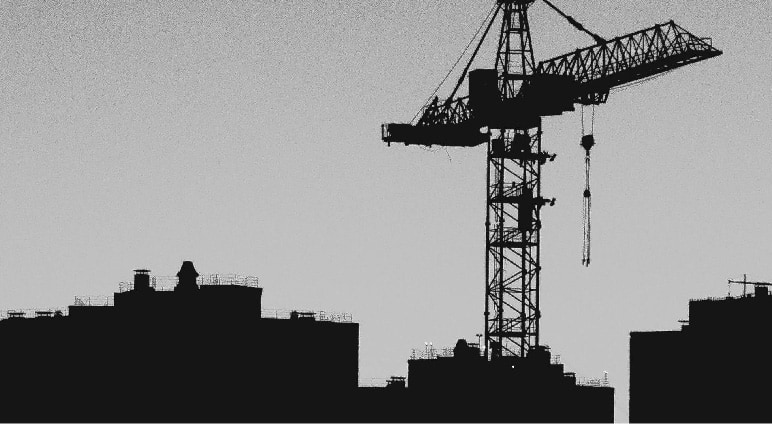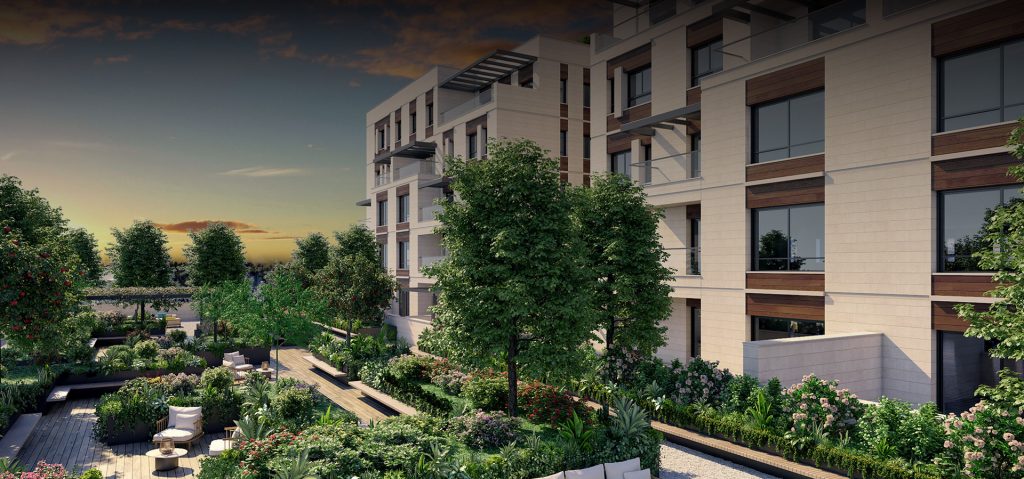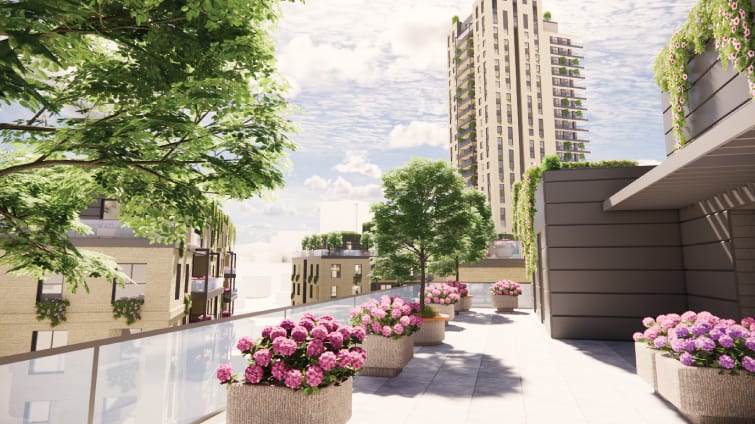Life in Israel is filled with hot button topics of discussion ranging from religious arguments, political talk, personal finances, the army, morality, and family life. But one area of talk that all Israelis can agree on is urban renewal. Many areas and buildings in Israel often feel old and out of date. We’ve all passed housing complexes that just shouldn’t be around anymore. It’s no wonder that urban renewal has been so welcomed by the people. Areas that were once ignored and even desolate, are now becoming revived, renovated, and exciting. Locals are seeing more affordable housing options, economic benefits and improved security. For many olim, urban renewal has given them the opportunity to live in the land of their ancestors, while not having to give up on the comfort of their homes or compromise their lifestyle. Urban renewal and property development isn’t always easy though and the process of turning old buildings and areas into beautiful modern complexes is often tumultuous and burdensome. In this blog post, we interview Zvuulun Rotenberg, VP of Business Development at Asden, to learn about the exciting Jerusalem construction projects in development. Zvulun talks about the process of developing projects in Jerusalem and the rest of the country, the challenges that come with construction, what projects are in the works, and finally what we can expect the future of our city to look like. For those looking to better understand the development process in Jerusalem, those interested in buying property in Israel, or those looking for the next big project to invest in, this is one post not to be missed.

Can you tell us a little bit about yourself and your role in the development process at ASDEN?
My background is in economics, finance, and real estate. At Asden, I navigate permits and legal documents to determine what we can and cannot do. I’ll determine if it’s possible and also profitable to develop a new project in a given location. We do a lot of work with property owners, preparing commercial offers for them, and working to come to an agreement where we can potentially develop their property. Right now we are in touch with over 600 property owners, so you can imagine it’s a lot to handle.
What are some of the specific challenges of this field?
For a new development project to take off, there needs to be almost unanimous agreement amongst the individual apartment/property owners before moving forward. Getting any large group of people to agree to anything is challenging. Add all the complexities and processes that come with real estate development and it often makes it almost impossible for a project to materialize. Many potentially awesome new development projects never happen because of a minority of the property owners who are not willing to budge from demands that are not financially feasible. In Israel, if you have less than 80% of the building’s owner’s approvals, a project can’t proceed and the courts won’t even consider such a case. Only recently did the government amend the law to ⅔’s building approval because it became so difficult for developers. The courts found that many owners refused to agree to new projects often just because of illegal modifications to their property, like adding a room where they didn’t have permission, and they didn’t want anyone to find out about it. The government is becoming more helpful because they see the supply for apartments and property isn’t meeting the demand. Things are becoming easier, but the challenges and complexities of developing new property are still very real.
What makes urban renewal and developing property in Jerusalem unique?
Jerusalem is a city with a large religious population, and as such there are unique considerations for developers. For example, in the western world, higher-floor apartments are more valuable and more expensive than those on lower floors. The “penthouse” is usually the most expensive apartment in the building. In many areas of Jerusalem, the opposite is true. On Shabbat, religious Jews don’t use the elevator, so getting up to higher floors becomes very burdensome. Now, almost all new buildings are built with Shabbat elevators, but many Chareidim (Ultra-Orthodox Jews) don’t use them, and even ones who do would still prefer to be on a lower floor. Kosher Sukkot can’t be built if there is any obstruction above the balcony. This adds another unique challenge for developers in Jerusalem because of the high demand for “Sukkah Balconies”. For many, a Kosher Sukkah balcony is their #1 requirement. In Maalot Dafna for example, a predominantly Haredi neighborhood, we are in the planning stages of a building complex and this topic is proving to be a real challenge.

What new projects is ASDEN working on now?
Right now Asden is working on a big project with 64 units in Baka. We’re building two huge towers there. There are a lot of projects in the early planning stages that we are involved in and there are many large-scale projects in Jerusalem that are in various stages of development. To provide some historical context, many neighborhoods in Jerusalem have historical significance, which needs to be considered when building a new property. Conservation is really important not only for the building itself but for the area around it. In areas like Rehavia, Talbiyah, Baka, Old Katamon, The German Colony, and the Old City, no towers are allowed. This makes it much more difficult to make new developments profitable. We have costs associated with paying the owners of the current property as well as building new units, and if we can’t build up, then it makes building in some areas basically not an option. What many developers do is build along the periphery and right at the corner of many of these historic neighborhoods. Asden for instance is now building on the corner of Tzomet Oranim. This is one way in which we balance the construction of the new property and maintain the history of the neighborhoods. Additionally, most of Asden’s developments aren’t just buildings. Often when we build, we add parks around the building and make the area surrounding the property beautiful.

What do you envision for Jerusalem property in 10-20 years from now?
The city will change drastically and tremendously. Honestly, in 20 years, the city will be unrecognizable. Right now alone, over 30,000 units are being planned. The center of the city is transforming. In the main entrance to Jerusalem from highway #1 there are 20 new buildings planned, each with approximately 40 stories. There will be beautiful high-rise apartments everywhere from Binyaneei Hauma to the shuk in one direction and the city center to Hadassa in the other. The train will expand and the whole area around the entrance of the city will be different. Talpiot is transforming as well. The city is investing an incredible amount of money in revitalizing the area, building offices, high-rises, and creating new parks and added greenery. Talpiot is going through a massive re-development process and there are over 20 high-rise buildings in its future. The transformation of Jerusalem is in full swing. We are excited to select specific new development projects in which we can contribute our unique style of quality to the overall enhancement of the city’s current and future growth.


